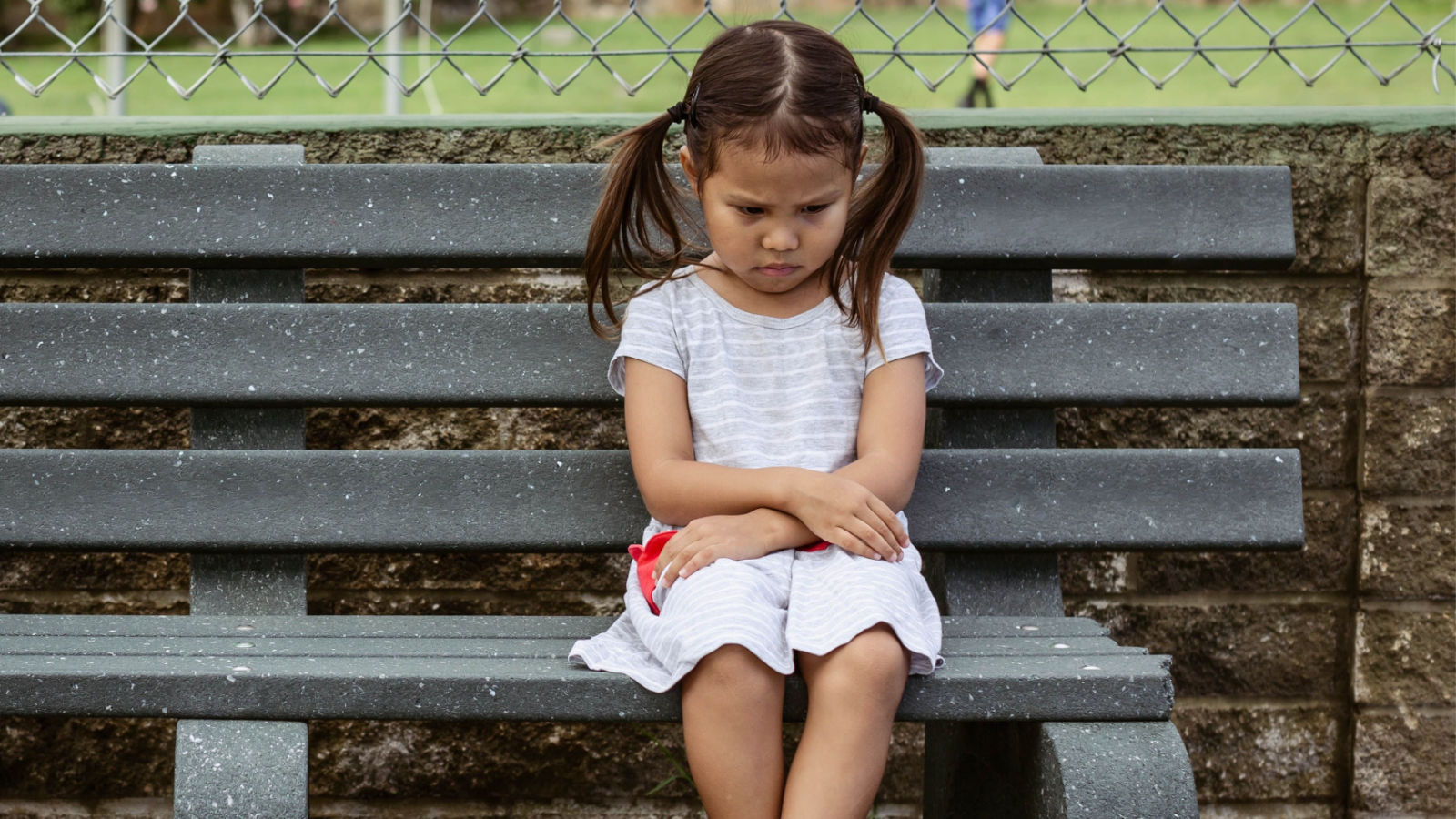The warmth of a hug does more than just make us feel good; it plays a crucial role in our emotional and physical development. For those who grew up with fewer hugs, the impact stretches far into adulthood, shaping habits, relationships, and self-perception. Let’s delve into how the absence of this simple act of affection can lead to a unique set of habits and how individuals navigate their world without it.
Increased Self-reliance

People not hugged in childhood often develop a strong sense of self-reliance. They learn to navigate their emotions and challenges without relying on others for comfort. This independence is admirable but can lead to difficulties in asking for help when needed.
Emotional Distance

A lack of physical affection during childhood can result in maintaining emotional distance from others. These individuals might find it challenging to express their feelings or establish deep connections. They often protect themselves by keeping others at arm’s length.
Heightened Sensitivity to Touch

For those not accustomed to physical affection in childhood, even a simple touch can feel overwhelming or uncomfortable as adults. They may react awkwardly or defensively to hugs or touches, which are meant to be comforting. This heightened sensitivity can complicate social interactions and relationships.
Difficulty Trusting Others

Growing up without hugs can make it harder to trust others, as physical affection is a basic form of expressing trust and safety. These individuals may question the intentions behind others’ actions, making it difficult to form close relationships. Trust must be earned gradually and carefully.
Preference for Solitude

People who weren’t hugged as children might develop a preference for solitude, finding comfort and safety in being alone. While solitude can be peaceful, it can also lead to feelings of loneliness or isolation if not balanced with social interactions. They treasure their personal space and time alone.
Strong Personal Boundaries

A natural response to a lack of physical affection can be the development of strong personal boundaries. These individuals are very clear about what they are comfortable with and often require more personal space than others. Respecting these boundaries is crucial for their comfort and trust.
Overcompensating as Parents

Those not hugged in childhood may overcompensate by being extra affectionate with their own children or loved ones. They aim to provide the comfort and security they lack, sometimes to the point of being overly protective. Their experiences drive them to ensure their loved ones feel valued and supported.
Seeking Affection Through Other Means

Finding alternative ways to seek affection becomes a habit for those not hugged as kids. They might look for validation and acceptance through achievements, gifts, or verbal affirmations. This search for affection can influence many of their life choices and relationships.
Emotional Guardedness

Keeping emotions guarded and hidden away is a common trait among those who lacked physical affection in childhood. They may struggle to open up or be vulnerable with others, fearing rejection or misunderstanding. Emotional guardedness acts as a protective barrier.
Anxiety in Intimate Situations

Intimacy can be particularly challenging for those not used to physical affection. They may experience anxiety or discomfort in intimate situations, not knowing how to respond or act. Overcoming this anxiety requires patience and understanding from partners.
Heightened Self-awareness

A lack of childhood hugs can lead to heightened self-awareness, as individuals constantly assess how they interact with others. They may be overly critical of themselves in social situations, worried about appearing too distant or too eager for connection. This self-awareness, while insightful, can be exhausting.
Dependence on Verbal Reassurance

Without physical reassurance, verbal affirmation becomes significantly more important. These individuals may rely heavily on words of affirmation to feel appreciated and loved. They value clear communication and often express love through language.
Perfectionist Tendencies

Striving for perfection can be a way to compensate for the affection not received in childhood. By achieving high standards, they seek to earn the approval and love they crave. However, this can lead to unrealistic expectations of themselves and others.
Fear of Rejection

A deep-seated fear of rejection can develop in those not hugged as kids. They may avoid situations where rejection is possible, which can limit their opportunities for personal and professional growth. Overcoming this fear is a significant hurdle.
Value in Material Possessions

Material possessions might become a source of comfort for those lacking physical affection in their upbringing. They may develop strong attachments to objects as a substitute for emotional connections. While these possessions provide temporary comfort, they recognize the need for deeper relationships.
Controlled Emotional Expression

People who weren’t hugged often learn to control their emotional expression meticulously. They might appear calm and composed, even in stressful situations, but this control can mask deeper emotional turmoil. Finding safe spaces to express these emotions is crucial for their mental health.
Skepticism Towards Affection

Skepticism towards gestures of affection, questioning their sincerity or expecting ulterior motives, is common. They may find it hard to accept that affection can be given freely and without conditions. Building trust in the genuineness of others takes time.
Social Caution

Being cautious in social settings is a habit developed out of a desire to protect oneself from potential hurt. They might take longer to warm up to new people or situations, observing from a distance before engaging. This caution is a protective measure, not a lack of interest.
Creative Expression

Creative outlets become a vital form of expression for those who grew up without hugs. Through art, music, writing, or other forms, they can communicate the emotions they find hard to express verbally or physically. Creativity offers a safe avenue for exploration and healing.
Avoidance of Physical Conflicts

An aversion to physical conflicts, even in situations where they may feel threatened or angry, can be more pronounced. They prefer to resolve conflicts verbally, valuing communication over confrontation. This aversion stems from their discomfort with physical expressions of emotion.
Adaptability in Relationships

Learning to adapt their comfort levels in relationships is a significant achievement for those not hugged as kids. They work hard to understand their own boundaries and communicate them to others, striving for healthy, fulfilling connections. Their journey towards comfort with affection is marked by gradual changes and understanding.








Diskutiere und unterhalte dich mit anderen deutschsprachigen Bondfans in unserem großen James Bond Forum.
Kurz bevor er den Aston Martin DB5 ersteigert, begrüßt er den deutschen Schultz (Jürgen Tarrach) an der Bar mit „Guten Abend“ („Nabend“).
No“ und „Leben und sterben lassen“ nicht zu sehen, jedoch war Miss Moneypenny bis jetzt in jedem einzelnen Bondfilm mit dabei (in Flemings Originalroman „Casino Royale“ wird sie nur kurz erwähnt).
„Rasante, in Details durchaus raue Verfilmung des ersten James-Bond-Romans von Ian Fleming, die
sich durch betonte Körperlichkeit und artistische Kabinettstückchen auszeichnet.
Ähnlich lange ist auch bereits Chris Corbould für die
Effekte der Bondfilme zuständig. Für den Geheimagenten wurden über 200 Darsteller in Betracht gezogen,
darunter die Australier Karl Urban, Sam Worthington und Hugh
Jackman sowie der englische Henry Cavill.
Bond erwacht in Gefangenschaft und wird von Le Chiffre durch Schläge
auf die Hoden mit einem verknoteten Seil gefoltert. Trotz eines zwischenzeitlichen Rückschlags
gewinnt Bond das Turnier mit einem Straight Flush in der letzten Hand und vereitelt dadurch Le Chiffres Plan. Der Offizier verlässt das Zimmer und wird daraufhin nach einer Schlägerei mit Bond von diesem erwürgt.
References:
https://online-spielhallen.de/die-ultimative-vegas-casino-bewertung-ein-tiefer-einblick-fur-spieler/
Ob Sie ein erfahrener Spieler sind oder Ihr Glück zum ersten Mal
versuchen, die lebhafte Atmosphäre und die vielfältigen Spielmöglichkeiten sorgen für
ein spannendes Abenteuer für alle Besucher. Tauchen Sie ein in die charmante Welt
von Mon Ami Gabi, einem bezaubernden französischen Bistro im Paris Las Vegas.
Diese ikonische Nachbildung des weltberühmten Pariser
Wahrzeichens im halben Maßstab bietet einen unvergleichlichen Blick
auf den funkelnden Las Vegas Strip. Tragen Sie
auch bequeme Schuhe, da Sie wahrscheinlich viel laufen werden, während Sie das Resort und den umliegenden Las Vegas
Strip genießen.
Entspannen Sie am Pool auf der Dachetage oder erkunden Sie das überdachte Einkaufszentrum.
Das Paris Las Vegas Hotel & Casino bietet eine Vielzahl von Freizeitmöglichkeiten. Das Paris Las Vegas Hotel & Casino bietet eine beeindruckende Auswahl an Restaurants und Bars.
Zur Ausstattung gehören ein Bügelbrett, ein Bügeleisen, ein Flachbild-TV, ein Haartrockner, ein Schreibtisch, ein Telefon, ein Wecker
und ein Safe. Jedes Zimmer verfügt über ein helles und komfortables
Ambiente mit einem Marmorbad. Die Zimmer
im Paris Las Vegas Hotel & Casino sind elegant im französischen Stil
gestaltet.
References:
https://online-spielhallen.de/n1bet-casino-erfahrungen-mein-umfassender-bericht-nach-10-jahren-spielpraxis/
The hotels on the property have a combined 1,171 rooms.
The casino, which was Queensland’s first, is situated next to the Nerang River and is operated by Star Entertainment Group.
The Star Gold Coast (formerly Jupiters Hotel and Casino) is an integrated resort located in the suburb of Broadbeach on the Gold Coast in Queensland, Australia.
Will you live it up in one of our executive rooms, soak up
the sun on your own personal balcony in one of our club suites, or live like royalty
in one of our two penthouses? Set amid one of the longest strips of pristine beach in the world and surrounded by lush hinterland ranges, Conrad Jupiters, on the Gold Coast, is the
ideal location for one of Australia’s best hotels.
You can also enjoy movie nights, live music, comedy, big screen sports
and more.
Nothing matches the glamour and excitement of table games.
Ian Brown has been working at the casino since
it opened and lived at the caravan park that was on the site prior
to construction. Mr Brown lived in the caravan park that was demolished to make way for the
casino. He was a blackjack dealer when the casino
first opened and is now the general manager of gaming.
The casino opened without poker machines, but had set aside space in case the Queensland Government softened
its laws. The hotel front office and lobby bar were also renovated.
“Thirty years ago it was very much about the casino, the table gaming offering and then the machine offering that came afterwards,” Mr Hogg said.
The seven acre complex includes eight bars, seven restaurants, conference facilities, a ballroom, theatre, health
spa and gym. The Star at Broadbeach is a large casino, luxury
hotel, and entertainment venue. Casino – try your luck
on more than 70 gaming tables and 1300 gaming machines.
There’s nothing quite like the thrill of the casino floor and 370
games on offer. Explore Townsville’s biggest and best gaming experience with the latest stand-alone and linked jackpot machines.
References:
https://blackcoin.co/what-is-free-play/
Whether you’re a casual player or a high roller, it’s a great
way to explore SkyCrown’s huge game selection without risking too much of your own cash upfront.And it doesn’t stop there!
Cash-outs at Skycrown are simple and support a wide range of options such as Visa, MasterCard, Skrill, Neteller,
PayPal, bank transfers, and cryptocurrencies including Bitcoin and Ethereum.
Skycrown Casino is a cutting-edge online gaming site established in 2022.
Sky City Casino, beating tirelessly at the heart of Nairobi, promises a gaming paradise open 24/7, always
ready to keep fortune on its toes. Our friendly and
hospitable staff will guide you all the way through, and in no time, you’ll find
yourself comfortably engaged in the game. These machines
offer a perfect blend of modern technology and traditional
gaming touch; perfect for everyone seeking a punch of adrenaline and thrill.
Whether you call yourself a casual player or an enthusiast, you’ll find something to captivate your senses and occupy your time in our welcoming space.
The timeless allure of Sky City Casino, complemented with its modern day charm, invites you to a gaming spectacle
that transcends the ordinary.
References:
https://blackcoin.co/harvest-buffet-the-star-sydney/
It makes it so much easier to plan your little gambling
getaway! ” We’ll help you locate casino that’s closest to you. Never again ask “Where is the best
casino near me?
This hole might be beautiful, but that beauty masks the challenge facing anyone playing it.
But away from the greens, The Wilderness is forgiving in places,
ensuring it’s not too intimidating to the regular player.
Designed by Jeffrey D. Brauer, previous players are effusive with praise for this secluded
Minnesota gem. Various packages are also available, including a two-day getaway with rounds on both the Pete Dye and
Donald Ross courses. A day out on the Pete Dye Course isn’t a cheap experience,
with green fees costing $400 to $450 per person.
In addition to their video lottery terminals, Eldorado
Gaming Scioto Downs offers harness racing and a horse racing simulcast facility where you can bet on races throughout the country.
Without further ado, let’s take a closer look at all casinos in Ohio
that residents and visitors of the state can visit today.
It would take nearly three years for the first casino to open its doors,
when in 2012 four land-based casinos opened up across the state.
References:
https://blackcoin.co/best-live-casinos-in-australia-2025-guide/
FlixBus connects Sydney and Canberra with a comfortable and affordable service, linking Australia’s largest
city with the nation’s capital. Greyhound Australia is Australia’s leading coach company with over 180 stops with services in every mainland state and territory.
The fastest way to travel is by flight, which takes approximately 55 minutes.
Take the Murrays bus on our popular Sydney to Canberra
service, running regularly, every day. You can apply for this offer once per year to support affordable language learning.
We translate a large amount of content in many fields,
ranging from general business texts to those requiring the expert’s knowledge or industry expertise.
We disrupt the old models with our high-quality solutions and a native-speaking
expert translator team that delivers on-demand and precise services.
Get satisfied clients who receive a timely response translated into their native language.
Expert language services with proofreading by a
native speaker. Drag and drop different documents for easy
translation, while preserving original formatting and layout.
If you want the translator to handle your project within hours, you can use our fast turnaround
service. Our linguist experts offer higher quality, SEO-friendly, accurate
translations. We offer more than 5,900 language pairs for instant machine translation and 110+
for masterpiece work by a linguist team. We offer a dictionary to
make your localized content more strictly logical.
References:
https://blackcoin.co/stake-casino-australia-where-online-thrills-begin/
online casino paypal
References:
cpc.managementdu.ac.bd
paypal online casino
References:
10xhire.io
paypal casinos online that accept
References:
sitecjob.ir
casino paypal
References:
https://oofninsdfdf.shop/bbs/board.php?bo_table=free&wr_id=218
mobile casino paypal
References:
https://starsgrp.net/profile/maid4401253134
casino online paypal
References:
https://westorebd.com/employer/best-online-casinos-australia-top-aussie-gambling-sites-2025/